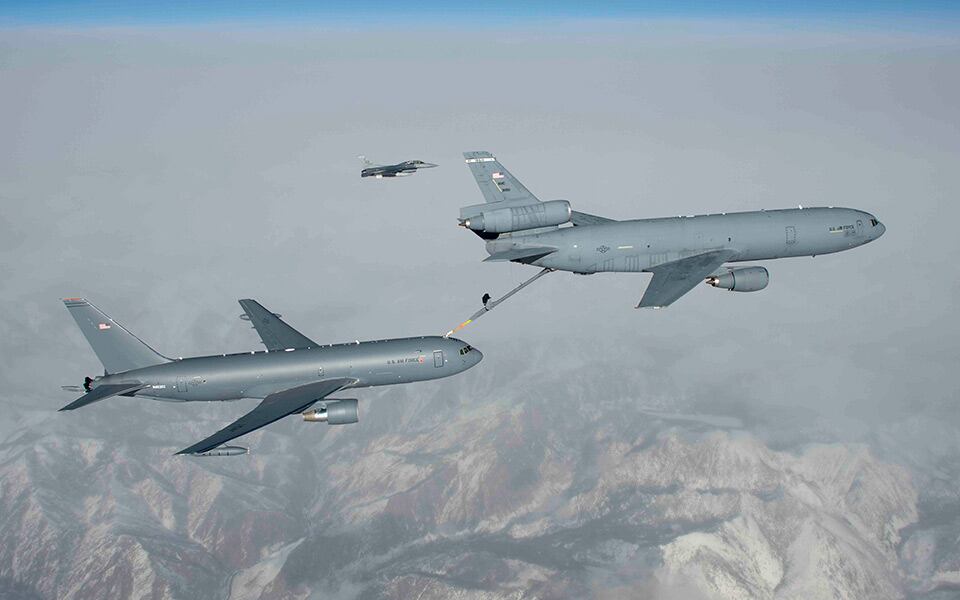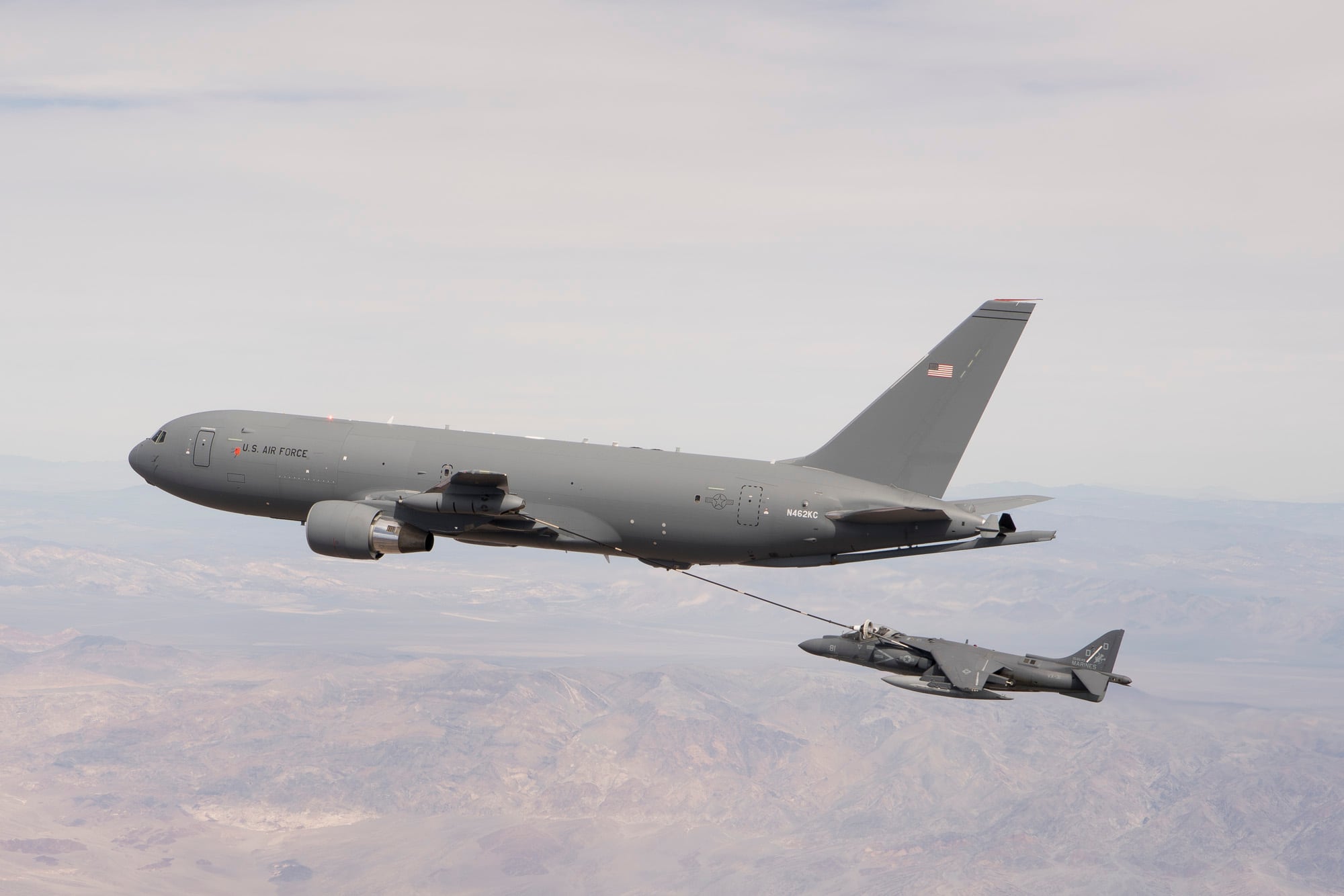WASHINGTON — The first KC-46 won’t be delivered this month as had been agreed upon by the U.S. Air Force and manufacturer Boeing, the service’s top civilian said Wednesday.
In an Oct. 17 interview with Bloomberg News, Air Force Secretary Heather Wilson acknowledged for the first time that the delivery milestone has slipped once again. Service officials and Boeing executives are meeting the same day to discuss how best to address a list of unresolved deficiencies — one of the major barriers keeping the Air Force from accepting the new tankers.
Last month, Defense News first reported that two new category-1 deficiencies had been added to the KC-46’s list of problems, bringing the total to five. A category-1 deficiency is the most serious grade of technical issues that have no workaround in place.
RELATED

Air Mobility Command head Gen. Maryanne Miller stated Sept. 18 that the service still expected the first tanker delivery to occur on Oct. 27. However, with most of October gone without any announcement of a firm delivery date, it seemed likely that the Air Force would have to wait at least another month to accept its first KC-46.
Earlier this month, Boeing CEO Dennis Muilenburg soft-pedaled the delivery date, saying at a conference in Seattle, Washington, that the first KC-46 would be handed off to the Air Force sometime this year instead of specifically in October, GeekWire reported.
On Wednesday, Boeing spokeswoman Kelly Kaplan reiterated Muilenburg’s statement that first delivery would occur by the end of the year.
“Boeing and the Air Force discuss the KC-46 every day,” she said in a statement. “We’re looking forward to today’s meeting. This discussion is part of our productive dialogue with the Air Force and will help lead us to delivering this essential new air refueling capability during the fourth quarter.”
The program has been plagued with delays over the past several years. Boeing was initially supposed to deliver the first 18 certified tankers in August 2017 — a milestone that has repeatedly been pushed back. After Air Force officials like Wilson repeatedly hammered Boeing for being too optimistic in its schedule estimates, the service and company reached an agreed-upon schedule that cemented first delivery in October.
RELATED

In her interview with Bloomberg, Wilson said that the reason for the most recent schedule slip was due to delays in getting the Federal Aviation Administration to approve the KC-46’s supplemental type certificate, not in resolving the remaining deficiencies.
“I’m not angry about it,” she said. “We have some deficiencies that we are working through with Boeing to make sure those are corrected.”
Boeing received its FAA certification in September, a couple months later than planned. The company is still waiting on a military-type certificate from the Air Force, which validates its military-specific systems and is anticipated to be awarded before the first tanker is delivered.
The Air Force plans to buy at least 179 KC-46s — although the service anticipates it will need at least 14 additional tanker squadrons to meet the objectives laid out in the latest defense strategy. That could potentially double the Air Force’s tanker requirement.
Although the service could accept its first tankers with unresolved category-1 deficiencies, officials have been reluctant to do so.
The five existing category-1 issues are:
- Visibility problems with the tanker’s remote vision system, or RVS, which Boeing is hoping to resolve via a software fix.
- Scraping of the receiver aircraft by the KC-46 boom, which Boeing and the Air Force believe will be resolved once the RVS is corrected.
- A mechanical lock on the centerline drogue system sometimes inadvertently disconnects during a refueling. Boeing plans to fix this with a software update.
- The flight control stick sometimes induces loads on the boom while it is in contact with a receiver aircraft and does not convey that information to the boom operator.
- The boom of the aircraft is sometimes too stiff during some portions of the refueling process.
The Air Force and Boeing have not announced how they will try to resolve the latter two deficiencies.
Valerie Insinna is Defense News' air warfare reporter. She previously worked the Navy/congressional beats for Defense Daily, which followed almost three years as a staff writer for National Defense Magazine. Prior to that, she worked as an editorial assistant for the Tokyo Shimbun’s Washington bureau.



